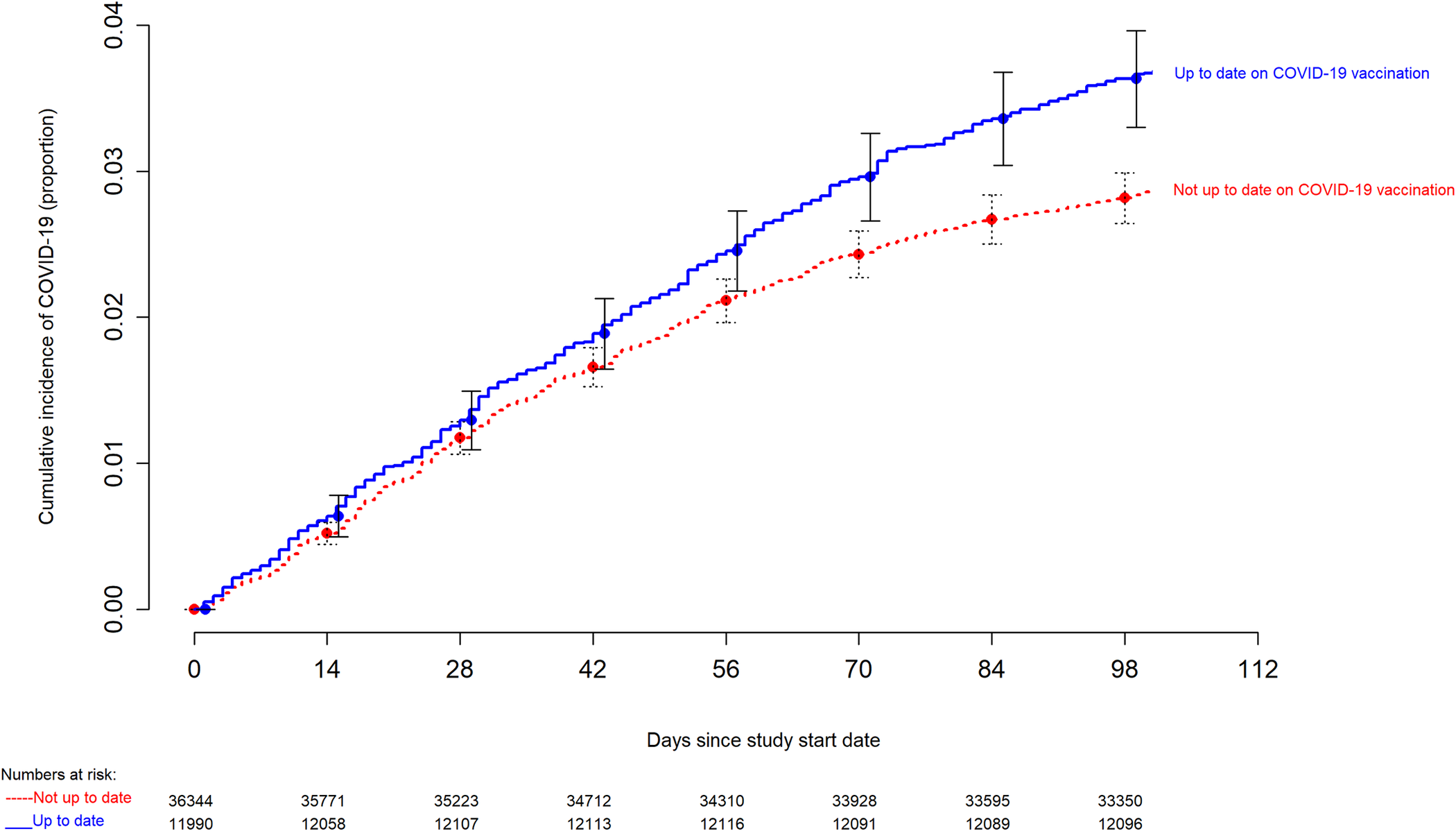"Background: The CDC recently defined being 'up-to-date' on COVID-19 vaccination as having received at least one dose of a COVID-19 bivalent vaccine. The purpose of this study was to compare the risk of COVID-19 among those 'up-to-date' and 'not up-to-date.' ...
Results: COVID-19 occurred in 1475 (3%) of 48 344 employees during the 100-day study period. The cumulative incidence of COVID-19 was lower in the 'not up-to-date' than the 'up-to-date' state. On multivariable analysis, being 'up-to-date' was not associated with lower risk of COVID-19 (HR, 1.05; 95% C.I., 0.88–1.25; P-value, 0.58). Results were very similar when those 65 years and older were only considered 'up-to-date' after 2 doses of the bivalent vaccine.
Conclusions: Since the XBB lineages became dominant, adults 'up-to-date' on COVID-19 vaccination by the CDC definition do not have a lower risk of COVID-19 than those 'not up-to-date', bringing into question the value of this risk classification definition."

© 2023 Shrestha et al.
This is an open access article distributed under the terms of the Creative Commons Attribution License, which permits unrestricted use, distribution, and reproduction in any medium, provided the original author and source are credited.
